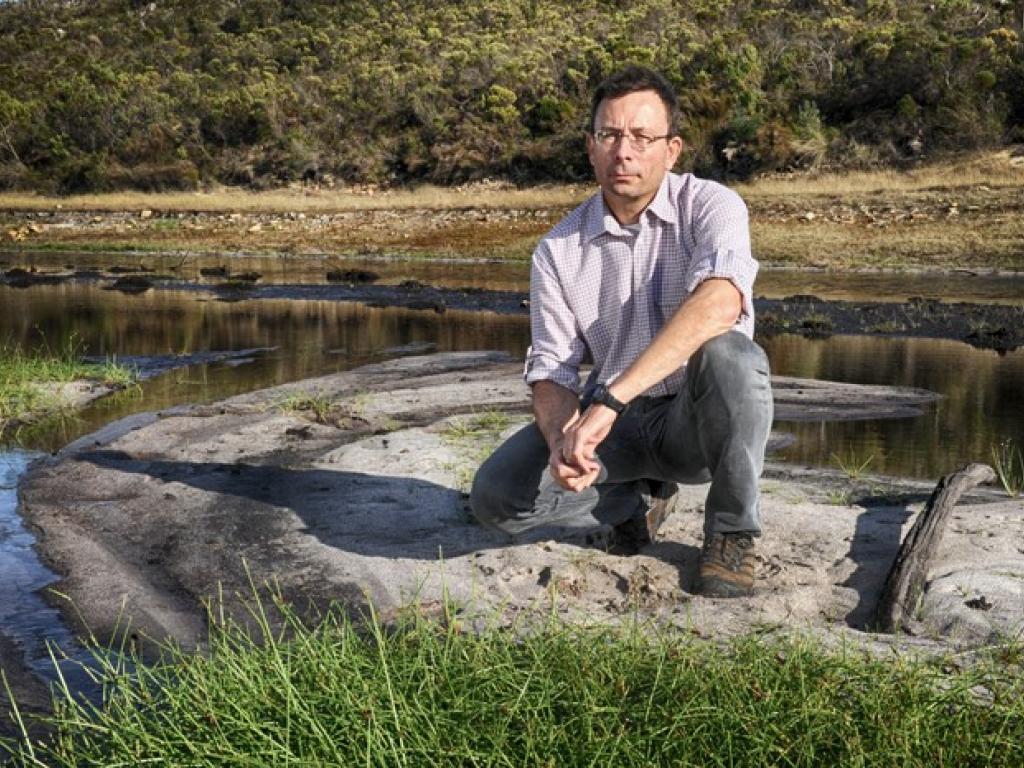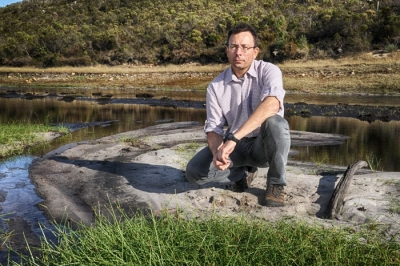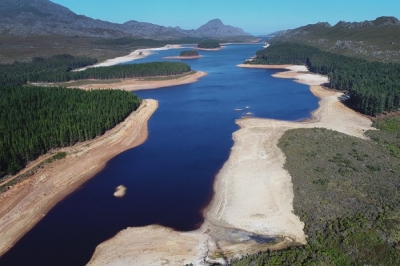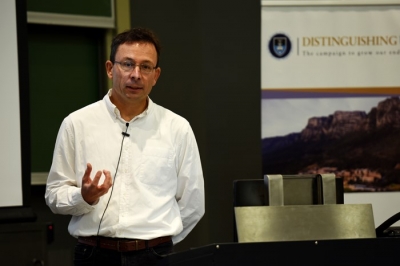Brace for frequent extreme weather


Prof Mark New, the newly appointed AXA Chair in African Climate Risk at UCT.
The severe two-year drought that is currently laying waste to the Southwestern Cape’s water supply might become much more frequent, thanks to the impact of global warming on regional climate. This is according to Professor Mark New, the newly appointed AXA Chair in African Climate Risk at UCT.
Preliminary analysis suggests that the current drought experienced in the Southwestern Cape is twice as likely today when compared with 50 years ago, with an intense drought like this landing once every 25 years rather than once every 50 years, says New. If these readings are confirmed, the Western Cape water supply system will need to be rethought. Currently, it’s designed to assure supply 98 out of every 100 years.
“Climate change has loaded the dice,” says New, who directs UCT’s African Climate and Development Initiative.
Management of climate risks for systems such as water resources or agriculture needs good information on the probability of weather and climate events that impact the system.
“For example, if your input data to the design of your water system is wrong because the dice have been loaded, then you need to change your input data.”
That’s where New and his colleagues come in.
The AXA chair, which was launched on 6 April 2017, is the first of its kind in Africa. It will fund 15 years of research that will inform better management of climate change risks. New is the first holder of what AXA calls a successional chair – a new scholar will be appointed every five years.
Future positions will offer “an opportunity to develop the careers of researchers who are close to associate professor level,” says New, adding that it would help entice the best climate change researchers to set up shop at UCT.
What can we blame climate change for?
New’s area of climate science research is called detection and attribution.
“It’s basically asking to what extent greenhouse gases are changing the climate risks that we’re exposed to,” New explains. “Say we have a heavy rainfall event that causes a lot of flooding in Cape Town. Is that climate change?”
The answer, says New, is not so simple. There have been extreme weather events since before greenhouse gases began polluting the atmosphere.
“What we can say is how global warming is changing the frequency and intensity of those events,” he says.”
If the risks are changing – and the research suggests that they are – the way we manage those risks must change, too, says New.
Risks demand different management of resources

The Steenbras Dam on 11 April 2017 – one of the six major dams that supply water to Cape Town.
Take the Western Cape’s water supply as an example.
The province draws the bulk of its water from a man-made network of supply from the Berg River, the Theewaterskloof, the Steenbras and the Palmiet. It is designed to be reliable – not run out of water – 49 out of every 50 years, on average.
But with more frequent, or more intense, droughts a real possibility, especially when these droughts last for two years, the system might be in need of rethinking, says New.
“We can think of the situation in terms of distal and proximate risks,” says New.
The distal risk is global warming changing climate and rainfall. The proximate risks involve the ways that people-made landscape systems affect our sensitivity to the climate events that we cannot directly control. When flooding is on the table, think roofing on houses, drainage and storm-water systems, whether rivers are in concrete canals or natural channels, and so on.
“My house on the slopes of Table Mountain would never get flooded because the extreme rainfall just goes underground,” says New. Somebody in an informal settlement on the Cape Flats will most likely see their home flooded, because the groundwater table rises and floods.
“So we’re also interested in how the human management of the landscape is changing the sensitivity to those external rainfall events and how we can change the landscape to reduce that risk. That then helps the people who have to manage the risks to figure out how they need to change their risk-management strategies.”
The big question

Prof Mark New at the launch of the AXA Chair in African Climate Risk.
New’s big question, then, is how exactly the risk has changed, and they’re working towards a final answer.
“We need to do a lot more work to get to a much more robust statement of how the risk of different high impact climate events have changed, but it looks like the risks have changed because of climate change,” says New.
“We are proud to support this research programme, Mark New and the researchers who are actors of change regarding climate in Africa, and working for a better future,” said Raphaël Gusdorf, head of the AXA Research Fund.
“I am glad to see AXA partnering with the University of Cape Town, a leading institution in Africa, around science and education, which are key topics for AXA and risk education in general,” added Denis Duverne, chairman of AXA’s board of directors.
Story Yusuf Omar. Photos Michael Hammond and Robyn Walker.
The Research Chair in African Climate Risk is supported by the AXA Research Fund, which supports scientific research for the understanding and prevention of environmental, life and socioeconomic risks. The AXA Research Fund is an arm of AXA, an international insurance and asset management company.
